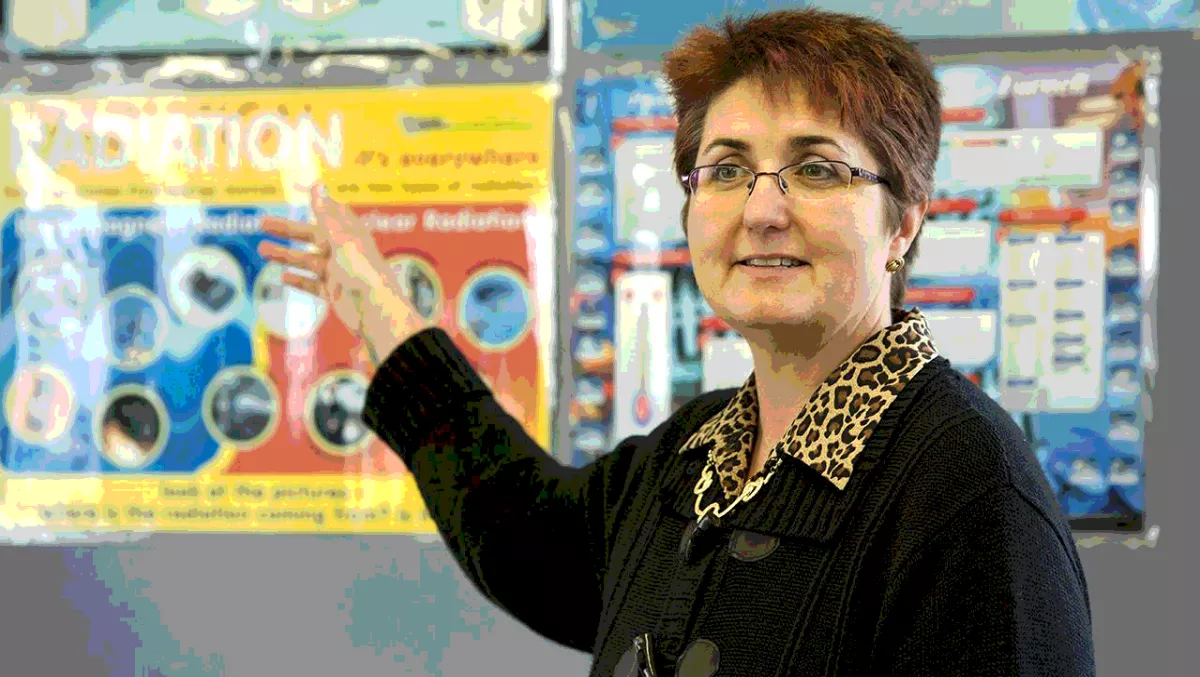
Training in IT helps teacher win award
An Auckland secondary school teacher who took night classes in computer studies so she could use ICT in her teaching, has won the 2013 Prime Minister’s Science Teacher Prize.
Fenella Colyer, head of physics at Manurewa High School, helped the school introduce Sparklabs, which use touch screen technology for collecting real-time data in science. She is now modifying the Sparklab files to reflect New Zealand content.
This, combined with writing educational modules tailored to students’ differing abilities and interests,and making class topics relevant to teenagers, has seen her reverse a trend of falling science class sizes. Literacy skills are also embedded in her programmes, enabling students to interpret or ‘decode’ the language in examinations.
“It may not be easy for teachers to do individual education plans for each student but it’s easy for all teachers to prevent students switching off by finding topics that interest them and fit the curriculum,” she says.
The journey of Polynesian explorers who colonised New Zealand, the physics principles involved in felling huge trees to make waka, navigation skills, the elasticity and strength of flax and the physics of sport are likely topics for her students.
“It’s about teaching students to use out of the box thinking, being creative and problem solving so they are able to apply knowledge to a raft of situations,” she says.
There has been a 30% increase in the number of Maori and Pasifika students studying science at Manurewa High in the past two years, with pass rates rising to 81%, exceeding the national average. Girls, who previously shunned physics, now outnumber boys in Manurewa’s senior classes, 13 students have won major regional or national science awards, others have been selected for and excelled at university science challenges, summer schools or science symposiums in New Zealand and overseas and one has attended Space Camp in the United States.
“I’m changing students’ attitudes about themselves and science. I think I’ve made them see that science is not boring and not terribly difficult,” she says.
“It’s such a thrill to see a less able student no longer scared or intimidated by science, when they realise they ‘get’ it, enjoy it and pass when they think they’re going to fail. Sometimes the most unlikely people are the most successful.”

